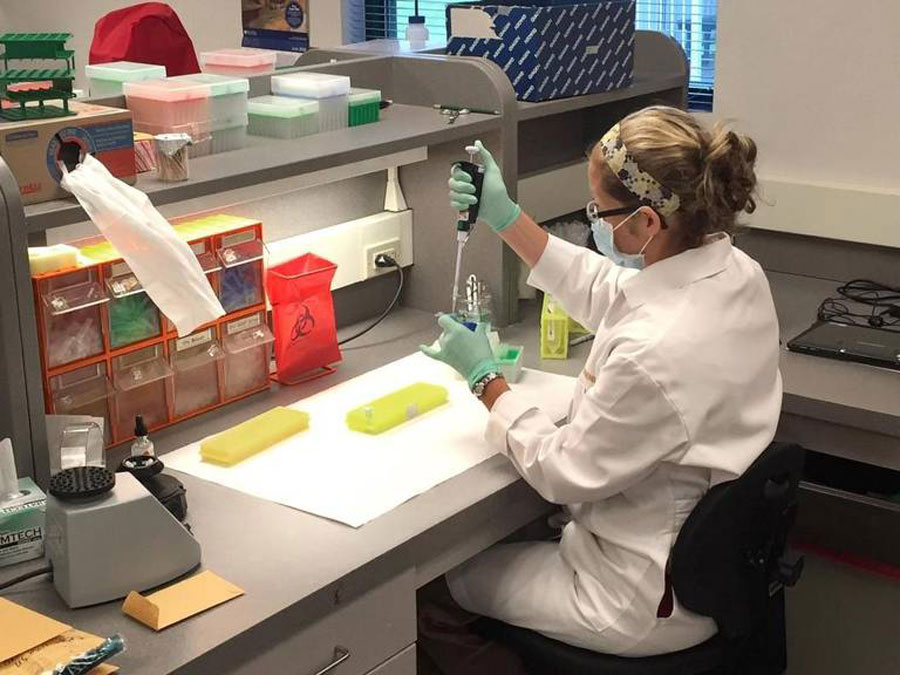Idaho will now test all rape kits. It could lead to more convictions, trust of police
Published at | Updated at
BOISE (Idaho Statesman) — After three years of implementing regulations around the testing and tracking of sexual assault evidence kits, law went into place on Monday that mandates the testing of all kits, with very rare exceptions.
The legislation was pitched by Rep. Melissa Wintrow, D-Boise, who has headed past legislation on the subject, too. Prior to 2016, there was no regulation around how police tracked and submitted sexual assault kits, better known as rape kits, to the Idaho State Police lab for testing. It left the decision of whether to test a rape kit largely up to the single police officer handling the case. Now, the discretion has been taken away, largely to avoid bias and to create a uniform process.
“It’s so exciting to be at this place today,” said Wintrow on Monday. “Because several years ago we were just setting minimum standards and through the tracking mechanism and the review of data we could see where we had glitches and some problems.”
A sexual assault exam, or rape kit exam, is performed by a medical professional after a person has been sexually assaulted. The exam can take several hours and includes swabbing and combing the victim’s body for any DNA evidence, such as bodily fluids or hair. Victims are often photographed for evidence and bruises or injuries are documented. The evidence is then used to identify a potential perpetrator with DNA and to confirm a victim’s story. The evidence can also help acquit anyone who may be wrongfully accused of rape.
As of this week, all kits will be tested in Idaho with rare exceptions. Exceptions could include if a victim undergoes a sexual assault exam but chooses to remain anonymous because they aren’t ready to move forward with reporting. Anonymous kits aren’t processed right away but are preserved for at least 10 years in case the survivor decides to come forward after the assault.
Annie Hightower, policy director at the Idaho Coalition Against Sexual and Domestic Violence, said the policy of testing all rape kits has strengthened survivors’ confidence in the police.
“One of the reasons why we really supported this legislation is that it is a really good tool to build trust with the law enforcement system because this way a survivor of sexual violence knows that if they go get evidence collected that the evidence will be tested and made available to use in a case,” said Hightower. “Where that was not a guarantee before and now it is.”
Matthew Gamette, ISP forensic services director, said Monday at the Statehouse that there has been an increase in submission of kits and they know it could lead to more investigations. The lab is still working its way through all of the previously untested kits that were never submitted, but he is hopeful the lab can complete testing of the backlogged kits by the end of 2019.
Then, the goal is to be able to complete the testing of any new kits submitted to the lab within 30 days.
“I do think that we will see an increase (in DNA matches),” said Gamette. “We’re more effectively dealing with that now through the legislation.”
The legislation has also created follow-up steps after a match is found, he said. It ensures that when a hit is found in the DNA database, it is followed up on and victims are notified.
Since Wintrow’s first piece of legislation passed, which mandated all rape kits be given a serial code number to track them in a public online system, ISP now has 3,714 kits in the system. That represents 3,714 people who were subjected to a sexual assault exam. Some of those kits may be very old and police just recently uploaded it into the new system, others could have been submitted just recently after evidence was collected from a victim.
Since Idaho implemented the tracking mechanism, nearly 30 states have inquired with ISP about using their tracking program, Gamette said.
“It helps with organizing law enforcement, it helps with transparency, it helps with empowering victims to know where their evidence is,” said Wintrow.
This article was originally published by the Idaho Statesman. It is used here with permission.



